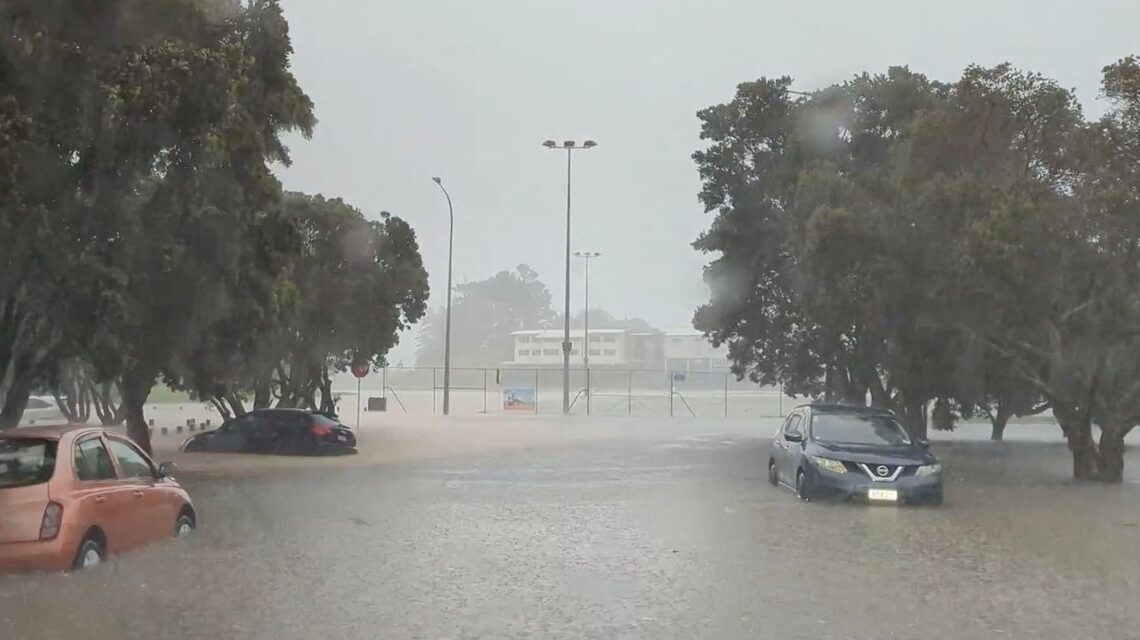New Zealand’s largest city declared a state of emergency after heavy rain inundated large areas and forced the closure of Auckland International Airport, where one aircraft had hit and damaged runway lights while landing.
More than 2,000 people sheltered overnight at the Auckland airport’s terminal buildings after dozens of flights were diverted or canceled. The rain triggered landslides, including in at least one residential area, and stranded motorists on a flooded freeway near the city. New Zealand’s national weather service said a record 9.8 inches of rain fell on the airport in 24 hours and forecast more to come.
Three people died due to the weather, Prime Minister
Chris Hipkins
said on Saturday. New Zealand Police said one man was found dead in a flooded culvert, and another in a flooded car park.
“The event was beyond anything we’ve ever seen. We were airlifting people off roofs with helicopters, we were retrieving people who were in their vehicles potentially getting submerged,” said Andrew Clark, a controller with the local government’s emergency management unit.
Auckland’s airport, the landing point for millions of visitors to the country each year and a key transit route to the U.S., was closed to all flights on Friday evening. Domestic services restarted at about midday Saturday, but international flights were canceled until Sunday. Airport operations were already disrupted after an Air New Zealand flight from Melbourne, Australia, knocked out runway lights on Friday. No one was hurt, and the country’s air-safety authority was alerted,
Air New Zealand Ltd.
said.
Auckland’s mayor,
Wayne Brown,
declared a state of emergency on Friday evening, giving first responders powers including the authority to evacuate residents across a city of some 1.5 million people. Centers were opened across the city to house displaced residents. New Zealand’s government said the country’s armed forces were in the city to support emergency workers.
“Having just surveyed some of the extensive damage both on the ground and in the air, it’s clear that it’s going to be a big clean-up job. The level of devastation in some areas is considerable,” said Mr. Hipkins, who became Prime Minister this week following Jacinda Ardern’s…
Click Here to Read the Full Original Article at WSJ.com: World News…

